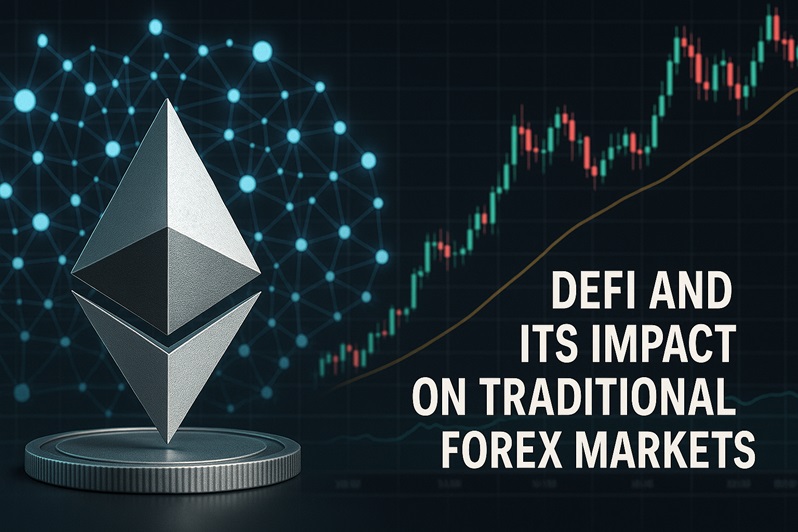
Decentralized Finance (DeFi) has emerged as a disruptive force in global financial markets, offering alternatives to traditional banking and investment systems. As DeFi continues to evolve, its impact on foreign exchange (Forex) markets is becoming more pronounced. While Forex trading has long been dominated by centralized institutions, DeFi introduces a new paradigm by enabling decentralized trading and financial services. Understanding how DeFi is reshaping Forex markets is essential for traders and investors looking to navigate this shifting landscape.
The Rise of DeFi in Financial Markets
DeFi operates on blockchain networks, offering financial services without intermediaries. By utilizing smart contracts, DeFi platforms facilitate peer-to-peer trading, lending, and liquidity provision. This decentralized approach contrasts with the traditional Forex market, which relies on banks, brokers, and centralized exchanges. The rapid growth of DeFi has led to increased adoption of decentralized exchanges (DEXs), stablecoins, and yield farming strategies, providing traders with new opportunities and challenges.
One of the most significant advantages of DeFi in Forex trading is its accessibility. Traditional Forex markets often require substantial capital and regulatory compliance, whereas DeFi platforms enable users to trade digital assets without centralized approval. Additionally, DeFi protocols operate 24/7, eliminating the time restrictions associated with conventional currency markets. However, this shift also introduces risks, including smart contract vulnerabilities and fluctuating liquidity.
How DeFi is Reshaping Forex Trading
The integration of DeFi into Forex markets is evident in various aspects. Decentralized liquidity pools, for example, allow traders to exchange assets without relying on market makers. This innovation reduces spreads and enhances market efficiency. Moreover, algorithmic stablecoins pegged to fiat currencies create digital alternatives to traditional Forex pairs, enabling seamless cross-border transactions without the need for traditional banking infrastructure.
DeFi also influences leverage and margin trading. Platforms such as Aave and Compound offer decentralized lending services, allowing traders to access leverage in a permissionless environment. Unlike traditional brokers, these platforms eliminate counterparty risk by utilizing collateralized smart contracts. While this democratizes access to leverage, it also demands a greater understanding of blockchain mechanics and risk management.
Regulatory uncertainty remains a key challenge for DeFi’s integration into Forex markets. Governments and financial institutions are closely monitoring DeFi’s expansion, with potential implications for taxation, anti-money laundering (AML) policies, and investor protections. Traders must stay informed about evolving regulations to navigate the complex interplay between decentralized and traditional financial systems.
Conclusion
DeFi is transforming Forex markets by introducing decentralized trading mechanisms, increasing accessibility, and offering innovative financial instruments. While challenges such as regulatory scrutiny and smart contract security persist, the potential benefits of DeFi for Forex traders are undeniable. As the financial landscape evolves, staying informed about DeFi’s role in Forex trading will be crucial for investors looking to leverage these emerging opportunities.
FAQs
How does DeFi impact Forex trading?
DeFi enables decentralized trading, reducing reliance on intermediaries and providing traders with greater accessibility and flexibility in Forex markets.
Can I trade Forex using DeFi platforms?
Yes, various DeFi platforms offer Forex trading alternatives through decentralized liquidity pools and algorithmic stablecoins.
What are the risks of using DeFi for Forex trading?
Risks include smart contract vulnerabilities, liquidity fluctuations, and regulatory uncertainties that may affect market stability.
Are DeFi Forex markets more profitable than traditional ones?
Profitability depends on market conditions, liquidity availability, and a trader’s ability to manage decentralized financial tools effectively.
Will regulations affect DeFi’s influence on Forex?
Yes, regulatory developments will play a crucial role in determining how DeFi integrates with traditional Forex markets and financial institutions.
